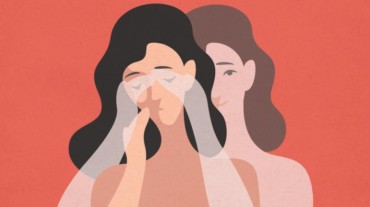
Prejudice, social stress, loneliness, and rejection–a queer person has to face all this on a daily basis. From the way they are looked at to the way they are treated–all this not just ruptures their self-confidence, but also takes a toll on them emotionally.
Do you know that according to a study published in the journal Psychological Bulletin, the queer community faces more mental stress than heterosexuals? Well, the reason is fairly understandable, given how stigma and bifurcation still plague our society.
The need of the hour is to understand the mental trauma faced by the LGBTQ community if we truly want to stand by them and normalise the conversations around sexuality.
Here we got Dr Rachna K. Singh, who is head of department of holistic medicine & psychology at Artemis Hospital, to share why members of the community are more likely to face mental distress and what we can do about it.

Isolation makes them more prone to mental distress
Well, it’s a universal fact that if anyone is isolated then this has implications on their emotional and mental well-being too. But Dr Singh says that, “People from the LGBTQ community face lot more hardships in their life which make them super sensitive to rejection and alienation, and that’s why they have more chances of developing depression and anxiety.”
Mental duress also lead to negative coping mechanism
Basically, a negative coping mechanism means taking the support of drugs or alcohol to subdue mental stress. Dr Singh says that “Queer people are six-times more at risk of developing depression and relationship issues and it has been seen that they adopt the negative coping mechanism to deal with it, which actually make the situation worse. In this case they need both mental and emotional support.”
She added:
This problem becomes so severe that they go in a frame of mind where they tend to develop suicidal tendencies and the only way out they see is ending their lives.
A positive coping mechanism is THE only way out for them
In negative coping, you take the help of things which are harmful to your body to reduce your stress. But when you start taking the aid of beneficial tools and mechanisms, then you also start building better mental health for you. For example, talking to your friends and confidants, decreasing personal frustration by choosing a healthy lifestyle, incorporating physical activity and breathing exercises are all positive coping mechanisms.
“Basically, we need to help them to think positive. Another thing which normally people from the LGBTQ community shy away from is coming out. Trust me, the day they come out–it makes them feel lighter in their head and heart”, she said.
Select Topics of your interest and let us customize your feed.
PERSONALISE NOW
“It also gives strength to other people in their community. Plus, they also have to accept themselves. But as a society I think we need to understand that before they do anything. It is us who have to accept them with open arms. Even with Section 377 abolished, we still have a bias against them. We need to understand this is not a disease, but an orientation,” she concludes.
In the end, there is a message here for all of us
“Every day multiple people are committing suicide because they are ridiculed by society, their family, and their own parents,” says Arnab Biswas, an out and proud influencer. “When you are already in a fight with your own body and mind, life gets difficult if your close ones don’t offer support. Stop bullying people! Be more tolerant and let’s save lives.”